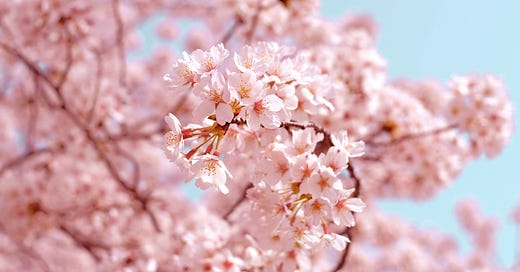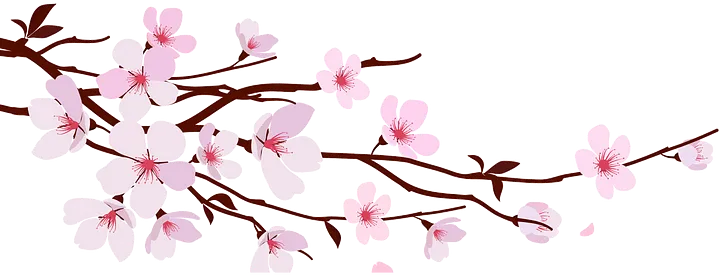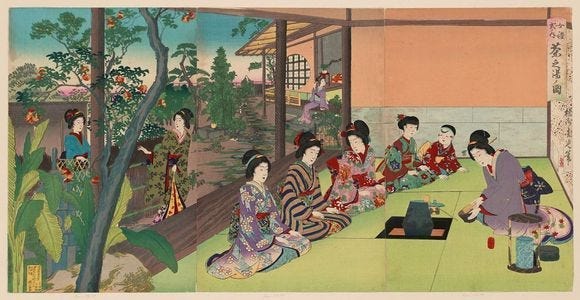🏷️ Categories: Deliberate practice, Happiness, Time
“The Present: a point so intangible that, even when we name it, it fades into itself.” Charles Searle, (1885)
It was a tranquil afternoon, one of those where I just expected to relax and let time flow, until an idea changed the course of the evening. While making a cup of tea at home, I watched as the steam rose from the teapot, swirling into beautiful spirals that disappeared in a fleeting instant. In that moment of calm, curiosity struck me about how those who have been drinking tea for centuries, namely the Japanese, would prepare it. Determined to satisfy my curiosity, I grabbed my phone and began to explore. Quickly, I found what I was looking for: the Japanese tea ceremony.
As I read, an unfamiliar word caught my attention: “ichi-go ichi-e.” And what is this? That was my reaction. If you’ve had the same one, don’t worry, go ahead and make yourself a tea too; let’s delve into a timeless Japanese concept that remains just as relevant 500 years later.
Origin and Meaning of Ichi-go ichi-e
Ichi-go ichi-e has its roots in the Japanese tea ceremony, a practice deeply ingrained in Japanese culture. It could be translated as “one time, one meeting,” and the concept is used to emphasize that each gathering to share tea with someone is a unique and unrepeatable occasion that deserves to be fully appreciated (Garrote, 2011; Varley and Isao, 1995). What you and I are doing at this moment exemplifies this principle precisely.
However, its meaning transcends simple tea gatherings. Ichi-go ichi-e insists that every opportunity in life is singular; we must embrace it as if it were the last. In a world with such a frenetic way of life, this concept urges us to make the most of each moment without rushing. It’s not about doing more, but about doing it better.
Wisdom of Martial Arts
In martial arts, the concept is used by masters to teach students the value of each attempt we make; every opportunity must be seized as if it were the last. This concept is applied in Aikido, for example.
Often, in the dojo, students interrupt a technique halfway through to try to correct their mistake and redo it. This is a mistake because in a real confrontation, there will be no second chances. Each movement must be executed with determination regardless of the errors that may arise in the process.
Act first, correct later. Constantly stopping to perfect each action only delays progress because perfection is unattainable. Instead of stopping, we must continue. Only when we finish this unique opportunity will we return to analyze it. Mistakes are part of the journey; they are not missed opportunities but opportunities seized to improve.
Application in Daily Life
Implementing the concept is not simple; embracing ichi-go ichi-e means changing the way we approach numerous aspects of our lives. Here are some examples:
One time, one meeting
If you’ve made plans with someone to go for a walk or have a drink, make the most of this encounter. Silence your mobile phone; everything else can wait. Dedicate all your attention to the conversation and fully enjoy their company. Sometimes I see people in cafes, sitting across from each other, not even looking at each other because they’re on their phones or engaging in superficial conversation. What a shame.
Live as if it only happens once
From a beautiful sunrise to the aroma of coffee in the morning, each moment becomes an opportunity to enjoy the world around us. There are memorable stories everywhere; we just need to be attentive for them to start appearing. This recently happened to me; the story appeared. I was walking in the countryside, wandering to clear my mind when I noticed that a tree had nibbled leaves. It took me just a few minutes to find the culprit:
A huge grasshopper had found a safe space to settle here. I was absorbed watching it, and I also thanked it for posing so well in front of the camera. Now it’s on the internet; it’s become famous. Enjoy the moment. If you’re wandering in the countryside, stop listening to music on your phone and put all your senses into what surrounds you; you’re missing out on the best.
Accepting Transience
Time is the most valuable and the only irrecoverable resource. You can earn more money or generate more of anything except time. Every moment we spend is lost forever; you can’t change the past or know what will happen. Seize the current moment; within it, possibilities for the future pulsate. This doesn’t mean we should work 24 hours; rather, we must make the most of every moment, regardless of its purpose.
Do you want to rest? Rest fully; don’t use your phone in bed. Are you going to study? Seize that afternoon to make as much progress as possible. Are you meeting someone this evening? Make it unforgettable. As I said at the beginning, it’s not about doing more, but about doing it as well as possible.
I just realized that after talking so much with you, my tea has gone cold. It doesn’t matter; I’ve experienced a unique opportunity with you in today’s conversation.
📚 References
Garrote, K. A. (2011). Fantasy, Asymmetry, and Void: Space in the Japanese Tea House.
Ginko, Adachi. Tea Ceremony [Ukiyo-e Style Painting]. 1888, Japan. Ukiyo-e.org
Omotesenke Fushin’an: Chanoyu Glossary. https://www.omotesenke.jp/english/chanoyu/glossary.html
Searle, C. (1885). Look Here! A Book for the Rail.
Varley, P., & Isao, K. (1995). Tea in Japan: Essays on the History of Chanoyu. University of Hawaii Press.










Beautiful. Honoring the sacredness of the moment. There are a million wonders and a million stories all around us, everyday. We desperately need to re-learn the art of life through the art of observation. The Japanese knew this long ago with 'Ichi-go ichi-e."
Beautifully written! Tea time is a sacred time in my house 💕